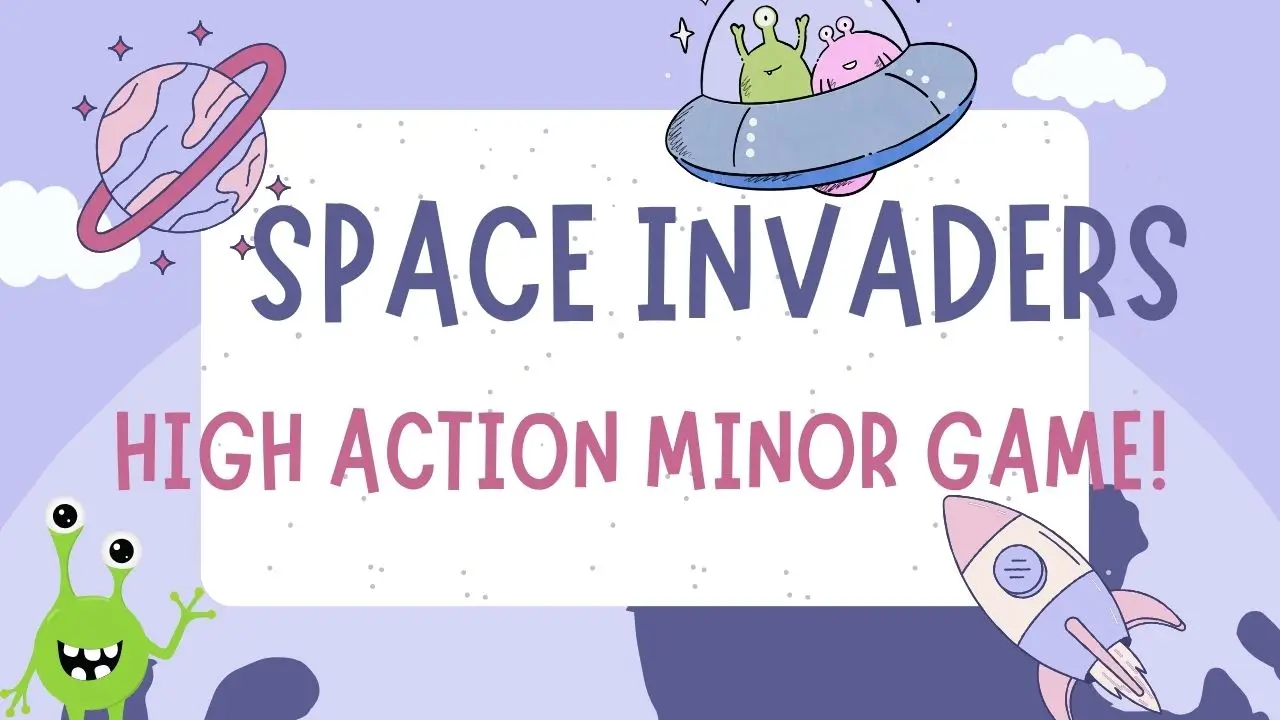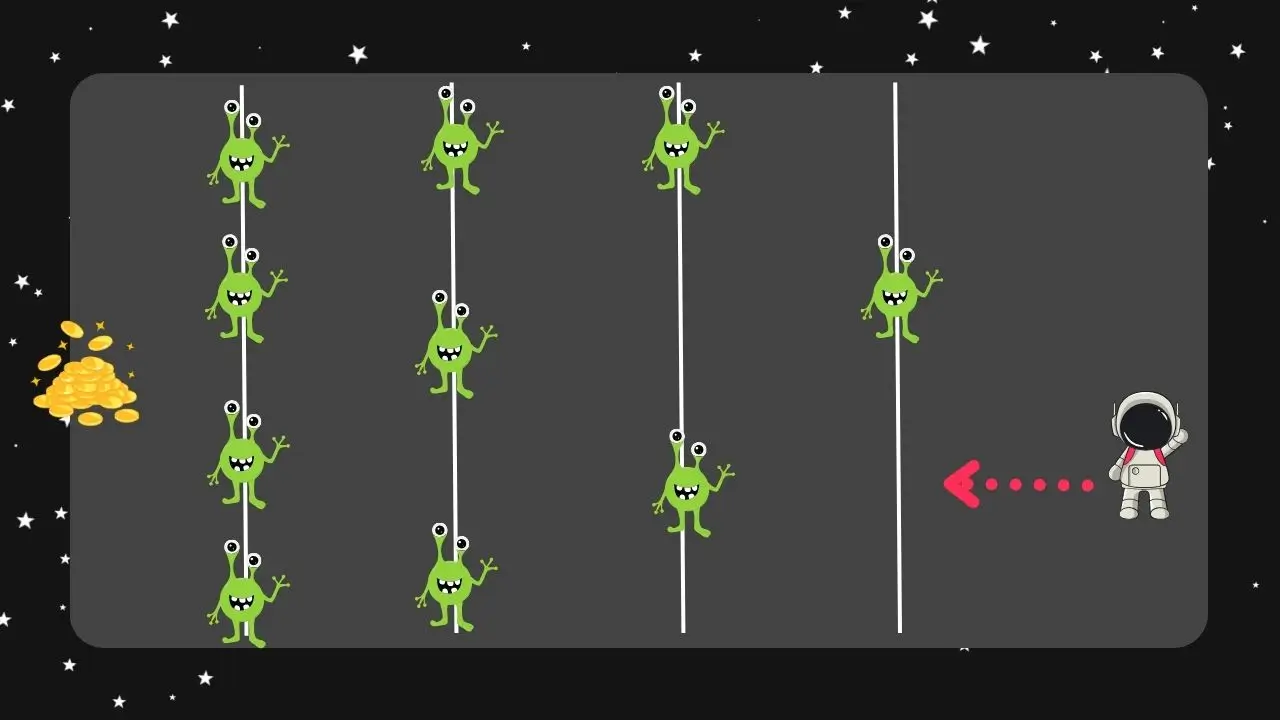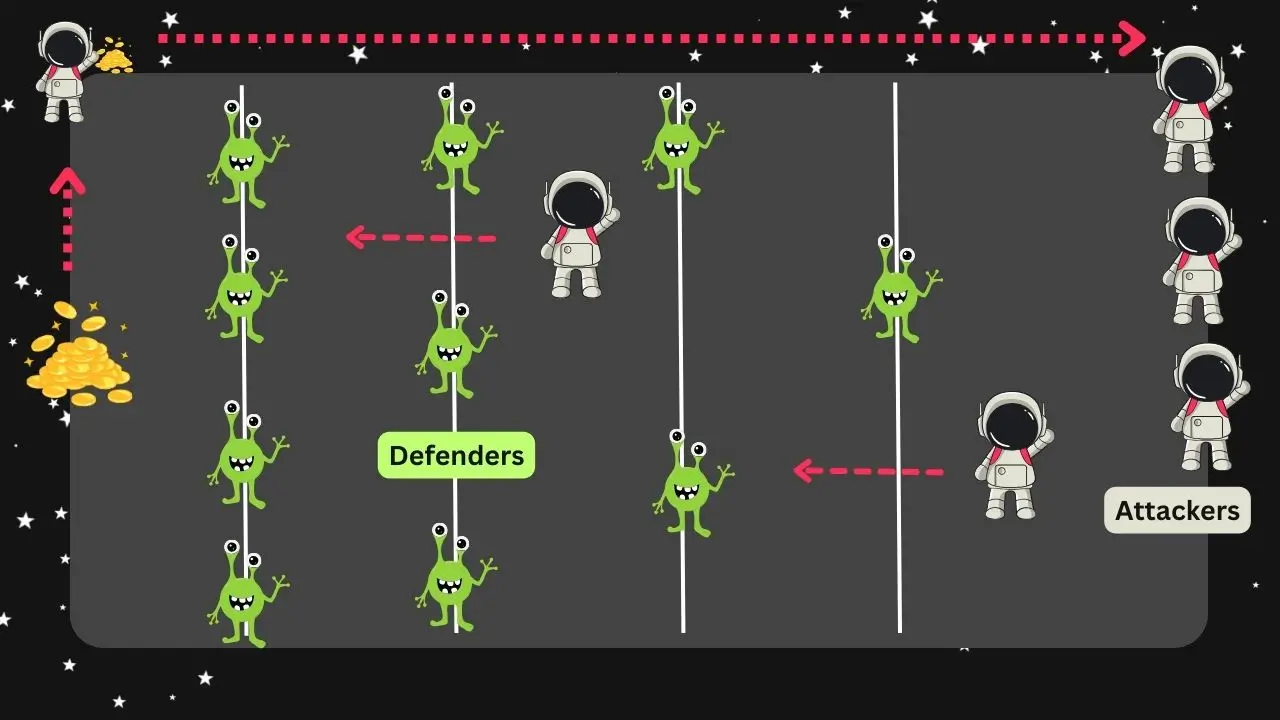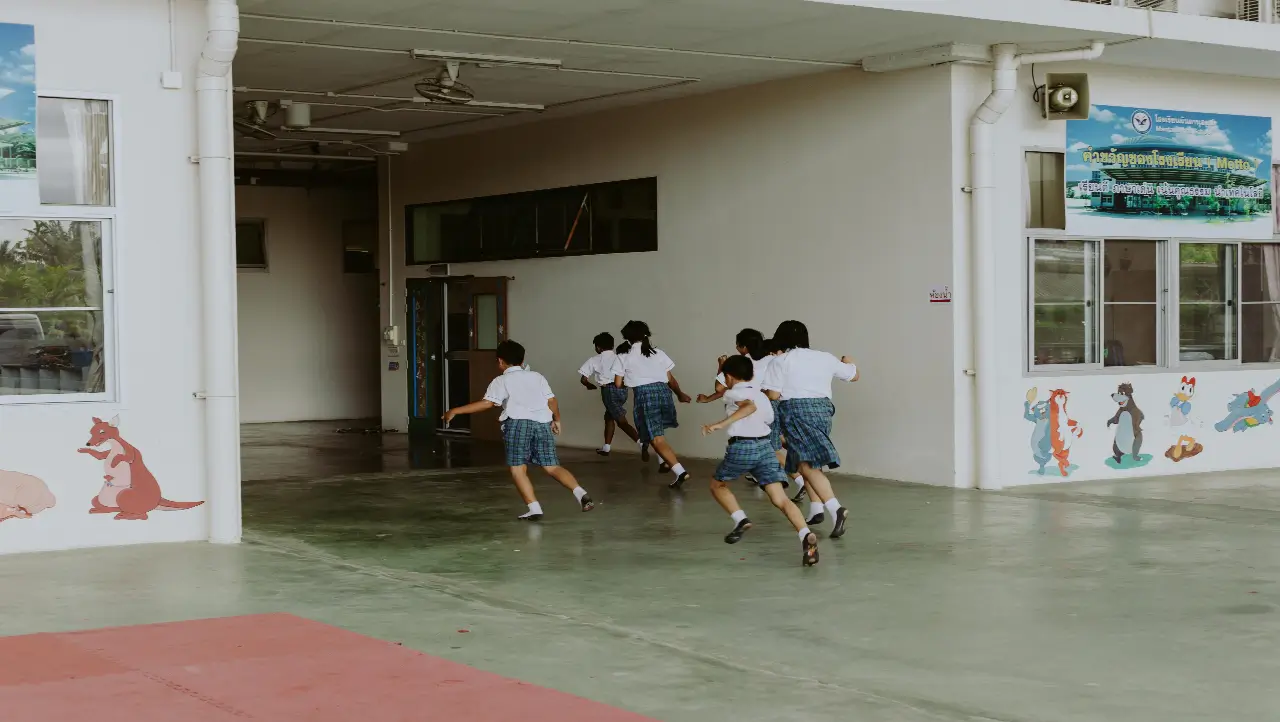Space Invaders | High-intensity Minor Game
Apr 21, 2024


Kas
A fantastic minor game that will serve as the perfect warm-up for your students prior to an invasion game or the perfect tool to introduce young learners to the category of invasion games. This will sure to be a class favourite and can easily be modified to suit all ages.
This game is unique in its ability to be used to discuss and implement defensive tactics, understand why moving laterally is important in invasion type games and also how we can work together as a team to ensure we are defensively effective. This game can be used in so many wonderful ways to enhance the knowledge of your students whilst insuring they are engaged and having a blast!
What Do You Need?
- An area of a basketball court
- Pool Noodle (Optional)
- Bean bags
What Is The Goal Of The Game?
- To get past the invaders without being tagged
- To collect as much treasure as possible
- Use FMS skills in a high-intensity situation
- Transferable skills for invasion games, especially working as a defence (Rugby, basketball, hockey, soccer, European handball)
Game Set-Up
- 4 lines of defenders (Can use cones to mark this out or ideally use already lined areas)
- A starting point for attackers (Invaders/ Astronaut)
- Treasure at the end of the last line of defenders
- Cleary identified areas for both attackers and defender

How To Play?
- Select 10 students to be the aliens- everyone else is the invaders
- Aliens will line up in lines in the following pattern
- One alien on the first line
- 4 meters behind that, another line of aliens but two this time
- 4 meters behind that another line of 3 aliens
- Lastly, 4 meters behind that, the last line of 4 aliens
- Aliens are only allowed to move laterally on the basketball court and cannot leave their line of move off it. If they do the invaders gets a free pass, past that line
- Each line of aliens will work together to try and tag the invaders as they move past the lines to attempt to reach the back of the court
- The invaders attempt to run one at a time passed each line of aliens to try and get to the end of the court where they can grab a bean bag and take it back to the base.
- If an invaders gets tagged they return to the back of the line of the invading students and will try again when its their turn
- When a invader makes it past the second line, another student is allowed to start the game

How Can You Modify It?
Make It Easier!
- Reduce amount of aliens on each line
- Reduce amount of lines
- Make the space bigger
Make It Harder!
- Aliens get pool noodles
- More lines of aliens
- More aliens in each link of defence
What Are The Main Skills Being Utilised?
Fundamental Movement Skills:
- Locomotor- run, jump, dodge, lunge, side step, leap
- Stability- turning, balance, stopping, bending, stretching
Tactical Skills:
- Scanning the field of play to make decisions
- Looking for gaps on the field to avoid being tagged
- Working together defensively
- Cooperative play, supporting teammates
- Following rules and structures of a game
- Critical thinking through decision-making
Why Are Minor Games Important For Students?
Minor games are often overlooked but play a crucial role in student development. Here are three reasons why they’re important:
- Social Skills Development: Minor games provide a platform for students to interact, collaborate, and communicate with their peers. Through activities like team sports, board games, or group challenges, students learn vital social skills such as teamwork, conflict resolution, and leadership. Research published in the journal (Frontiers in Psychology, 2018) found that participation in team sports positively impacts social skills development in children and adolescents, fostering qualities like empathy and cooperation.
- Physical Health and Well-being: Engaging in minor games encourages physical activity and promotes a healthy lifestyle among students. According to a study published in the (Journal of Pediatrics, 2018), regular participation in physical activities during childhood and adolescence is associated with numerous health benefits, including improved cardiovascular health, bone density, and mental well-being. Minor games provide an avenue for students to stay active, reducing the risk of obesity and related health issues.
- Cognitive Development: Minor games stimulate cognitive functions such as problem-solving, strategic thinking, and decision-making. Whether it’s solving puzzles, strategizing in board games, or planning moves in sports, students exercise their mental faculties in a fun and engaging way. Research conducted by the American Psychological Association (APA) suggests that cognitive stimulation through activities like games can enhance brain function, improve memory, and even protect against cognitive decline later in life.

Helpful Resources:
- Fundamental Movement Skills: Flash Cards + Circuit
- Coloured Cones For Teaching P.E! (Amazon)
- Coloured Sit Spots for behaviour management! (Amazon)
- Awesome Teacher Planner! (Amazon)
- How to create a better work life balance?
- Why are minor games important for students to learn?
- Emotional Regulation Posters
- Assessments for P.E- Ready to go
- What are invasion games?
- First time teaching P.E? Heres where to start!
